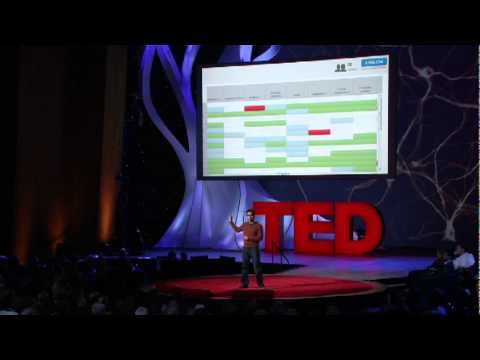This piece by Natasha Singer, about the hype gathering over the use of AI to “fix” education, is a good demonstration of the cap on how good edtech journalism can be. It’s much better than 90% of reporting on the intersection of education and technology, particularly in its dedication to pointing out all the failures of the past and to injecting a healthy dose of skepticism. But there are still limits. In particular, Singer gives Sal Khan a lot of space to talk about how his new education AI venture is going to revolutionize schooling. What’s deeply frustrating is that for more than a decade Sal Khan similarly said that the videos on his “Khan Academy” would revolutionize education, and they utterly failed to do so. What happened to that, Mr. Khan? I’ve watched the video above, several times, over the past decade, in part because the “Khan Academy will save us” narrative was once so popular. I kept waiting for its prediction to come true; they very conspicuously did not. Like every other promised “revolution” in schooling, stretching back centuries, the one described in the video above evaporated like a fart in a hurricane. One would think that past failure would be foremost on everybody’s mind, but there’s a lot of amnesia in this corner of the world. What’s frustrating is that Singer apparently did not think to say to Khan, “Hey Sal, why should we trust your new TED Talk, when your last one turned out to be a litany of pretty delusions and optimistic fables?”
No revolutions are coming to education because school outcomes are dictated by
Inequalities of race and class in American society which ensure that students learn in profoundly different life environments, regardless of what happens in the classroom, and which 40+ years of effort have not been able to ameliorate through school-side reforms, and
the combination of genetic and environmental effects that together produce an inherent, intrinsic, more-or-less immutable level of academic potential for every individual student.
Until and unless we as a society come to terms with the fact that we are no more able to control the educational outcomes of our students than we are their personalities, tastes, or interests, we’re stuck. But nobody ever got rich talking about what we can’t do. Duolingo’s stock price isn’t going to get a bump from its CEO talking about failure and limits, and Google isn’t going to carve out market share by telling people to have realistic expectations. Acknowledging the profound limitations of formal schooling, whether for closing academic gaps or erasing social inequality, has the benefit of embracing the truth, but there’s no money in it, and the kind of gullible rubes with deep pockets who donate money in this space hate to hear it. (Reed Hastings is going to go to his grave shoveling cash into a furnace labeled “School Reform.”) Until sense overcomes hype, optimism bias will dominate and gurus like Khan, somehow too cynical and too idealistic at the same time, will flourish.




It’s funny - Khan Academy videos (and pre-recorded lectures etc more generally) imo *are* very useful tools… but the people who are motivated enough/positioned to do extended self-study (which is what theyre for, at bottom) aren’t poor kids in bad homes.
they’re a cheaper, more convenient way for the top 1/3 to get better, not for the bottom third to close the gap with the 50th percentile… because if the bottom third were positioned to effectively take advantage of self-study, they’d be doing it already.
E.g., in the legal world — I used youtube videos to study and review logic games for the LSAT during evenings/weekends, in lieu of a tutor or expensive LSAT class. Bar test prep is now fully remote, pre-recorded. Another example - UC Berkeley has had issues w/entry level computer science classes being oversubscribed and has at various points switched to streaming/recording lecture as. All seems to work great
But not remotely same population as middle schoolers in danger of failing 6th grade math. If they could teach themselves, they’d be reading the textbooks and doing the homework…making it a video or AI tool isn’t gonna change that
Another factor that influences Mr. Khan is that being a very bright guy he has a tendency to think that “we” could teach anything to anyone if we just explained it properly. Those types of people struggle to grasp the limitations inherent in having an IQ on 84.